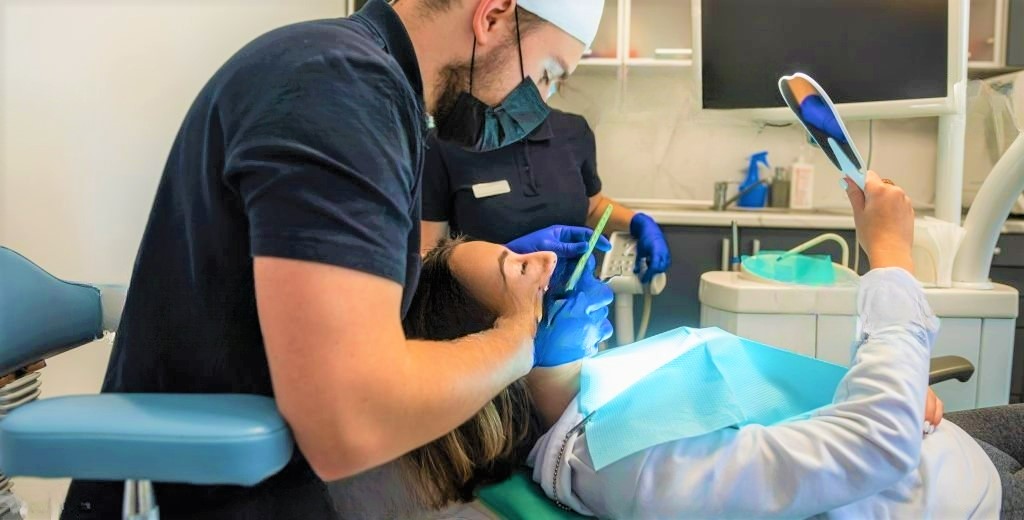
Orthodontist Vs Dentist – Who Should You Trust With Your Smile?
When it comes to your smile, you want the best care and service possible. However, the type of dental specialist you see will depend on your specific needs.
General dentists complete four years of dental school and are skilled in treating common oral issues. They are similar to your family GP medical doctor.
Dentists vs. Orthodontists
When it comes to your dental health, you want to be sure that you get the best care possible. But what many patients do not realize is that they are not receiving the best care if they choose to see a general dentist for their orthodontic needs rather than a qualified orthodontist. This is similar to having a general physician perform open heart surgery; it just isn’t a good idea.
A general dentist is a medical professional who works to treat the whole mouth and jaws, including the teeth, gums, nerves, and palate. They work to establish regular dental care plans with their patients and can perform routine services such as teeth cleaning, X-rays, and examinations, as well as more complex procedures such as tooth extraction and crown placement.
However, the primary responsibility of a general dentist is to maintain healthy teeth and jaws. They do this by preventing and treating problems such as tooth decay, gum disease, and oral infections. They also help their patients prevent more serious problems by teaching them how to take proper care of their teeth through a regimen of brushing and flossing (we all know how important these are).
Orthodontics is a field of dentistry that addresses crooked or misaligned teeth, as well as over- and underbites, occlusion, and crowded and spaced-out teeth. It is a more specialized practice that requires additional schooling to achieve certification.
While some general dentists may provide orthodontic services, such as braces, it isn’t a part of their core business. They are likely doing so to bring in more revenue and draw customers into their office who may not otherwise seek out orthodontic treatment. In other words, they are trying to capitalize on the popular demand for orthodontic care.
But patients should not let this advertising lure them into the wrong office. Seeing a general dentist for orthodontic treatment is a little like having your family doctor perform your heart surgery; you could probably go to the nearest hospital emergency room for this type of surgery, but would you really trust it to a physician who only specializes in wounds and injuries?
There are some general dentists who have received advanced orthodontic training and can offer more complicated treatments such as palatal expansion, expanders, and orthognathic surgery. These treatments are more invasive than the simple services offered by an orthodontist and are generally reserved for those with severe overbite, underbite, skeletal disharmonies and asymmetries, and malocclusion issues that cannot be treated with braces alone.
If you have any questions about the difference between orthodontists and dentists, please contact your trusted Manhattan and Riverdale orthodontist. Our skilled team is happy to answer any of your questions and can even set up an initial consultation to determine the best course of action for you! Call us today! We look forward to helping you reach your smile goals. A beautiful, straight smile is a priceless asset that boosts confidence in social situations and can lead to better self-esteem and healthier teeth.
Orthodontists vs. Dentists
Visiting your dentist for regular checkups and cleanings is a crucial part of maintaining healthy teeth. However, if you are suffering from misalignments of your jaw or teeth, it may be time to visit an orthodontist. While they both work in the dental field, there are a few key differences between an orthodontist and a dentist.
Dentists are more like general physicians, and they handle overall oral care for patients of all ages. They are skilled at diagnosing and treating common problems such as tooth decay, gum disease, and crooked or misshapen teeth. They can also assist patients with a variety of cosmetic dentistry procedures, including dental implants and crowns.
In contrast, orthodontists have more specialized training and can help patients with a variety of issues related to their smiles and bites. They have completed a minimum of eight years of schooling, and they focus on treating more severe misalignments and jaw issues. An orthodontist can also address cosmetic dentistry issues, such as improving the appearance of your teeth and restoring your smile.
If you have any questions about your smile, you can always ask your orthodontist, and they will be happy to answer any of your concerns. Depending on your insurance coverage, you may require a referral from your dentist before scheduling an appointment with an orthodontist. This is a good idea because it will make your insurance claims process easier and ensure that your orthodontist is qualified to provide treatment.
While some dentists offer orthodontic services, such as braces or clear aligners, they are not orthodontists. In fact, dentists must complete a pre-dentistry or pre-medical degree before they are able to attend dental school, which is where they receive the foundational education to become a dentist.
After receiving their dental degree, dentists can choose to further specialize in orthodontics or other areas of dentistry, but the majority will not. This is why it’s important to find an orthodontist that has the education and experience needed to provide you with exceptional care.
Orthodontic care is essential for a healthy, beautiful smile. If you have any issues with your smile, be sure to contact Wired Orthodontics and schedule an appointment with Dr. Nalbandian. Together, you will create a plan to get your smile back on track. We look forward to helping you achieve your best smile yet! Call us today to get started.